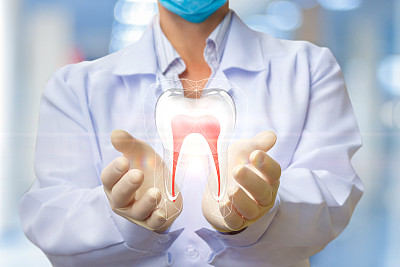Combatting Periodontal Disease Tips for a Healthy Smile and Gums
Summary: Periodontal disease, a common oral health issue, can be effectively combatted with proper care and maintenance. This article provides comprehensive tips for maintaining healthy gums and a bright smile.
1. Importance of Oral Hygiene

Good oral hygiene practices, such as brushing, flossing, and regular dental check-ups, are crucial in preventing periodontal disease. Use a soft-bristled toothbrush and fluoride toothpaste to clean your teeth at least twice a day.
Proper flossing helps to remove plaque and food particles from between the teeth, reducing the risk of gum disease. Regular visits to the dentist for professional cleanings and check-ups can catch any oral health issues early on.
Additionally, avoiding tobacco products and maintaining a balanced diet low in sugar can contribute to overall oral health and prevent gum disease.
2. Symptoms and Early Detection
Recognizing the signs of periodontal disease is essential for early detection and treatment. Common symptoms include red, swollen, or bleeding gums, persistent bad breath, receding gums, and loose teeth.
If you experience any of these symptoms, consult your dentist immediately for a thorough examination. Early diagnosis can help prevent further damage to the gums and teeth and increase the chances of successful treatment.
Dental professionals may use X-rays, oral exams, and measurements of gum pockets to assess the severity of the disease and recommend appropriate treatment options.
3. Treatment and Prevention Strategies
Treatment for periodontal disease varies depending on the severity of the condition. Non-surgical options include deep cleaning procedures like scaling and root planing to remove plaque and tartar from the teeth and under the gums.
In more advanced cases, surgical interventions such as flap surgery or bone and tissue grafts may be necessary to restore gum health and stabilize the teeth. Following treatment, maintaining good oral hygiene practices is essential to prevent reoccurrence of the disease.
Preventive strategies like using antimicrobial mouthwash, practicing proper brushing and flossing techniques, and scheduling regular dental visits can help reduce the risk of developing periodontal disease.
4. Lifestyle Factors and Overall Health
Several lifestyle factors can impact the health of your gums and overall oral health. Stress, inadequate nutrition, and certain medical conditions like diabetes can increase the risk of gum disease.
Managing stress through relaxation techniques and maintaining a well-balanced diet rich in vitamins and minerals can support gum health. Additionally, quitting smoking and limiting alcohol consumption can significantly improve oral health outcomes.
Regular exercise and staying hydrated also play a role in promoting healthy gums and a strong immune system to combat oral infections.
Summary:
Effective prevention and timely treatment are key in combatting periodontal disease. By prioritizing oral hygiene, recognizing symptoms early, seeking appropriate treatment, and addressing lifestyle factors, individuals can maintain healthy gums and a bright smile throughout their lives.
This article is compiled by Vickong Dental and the content is for reference only



